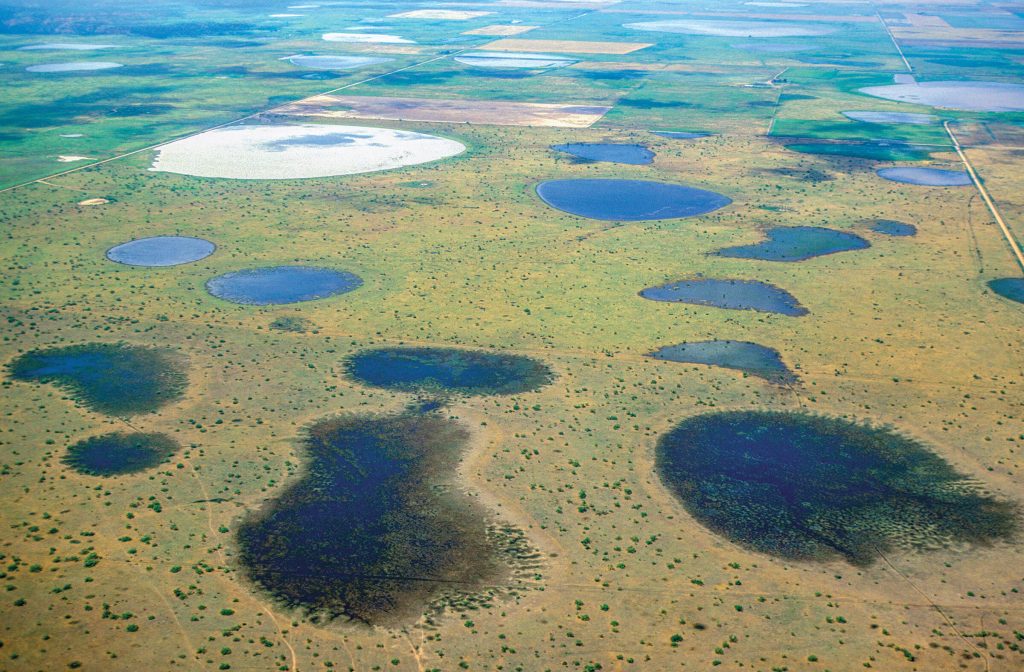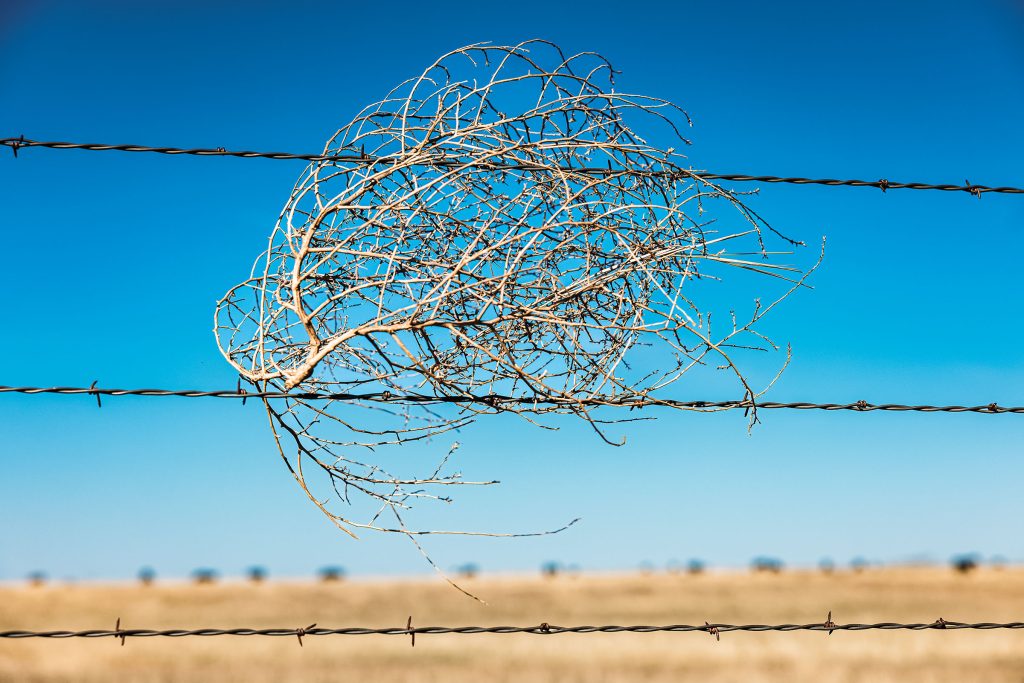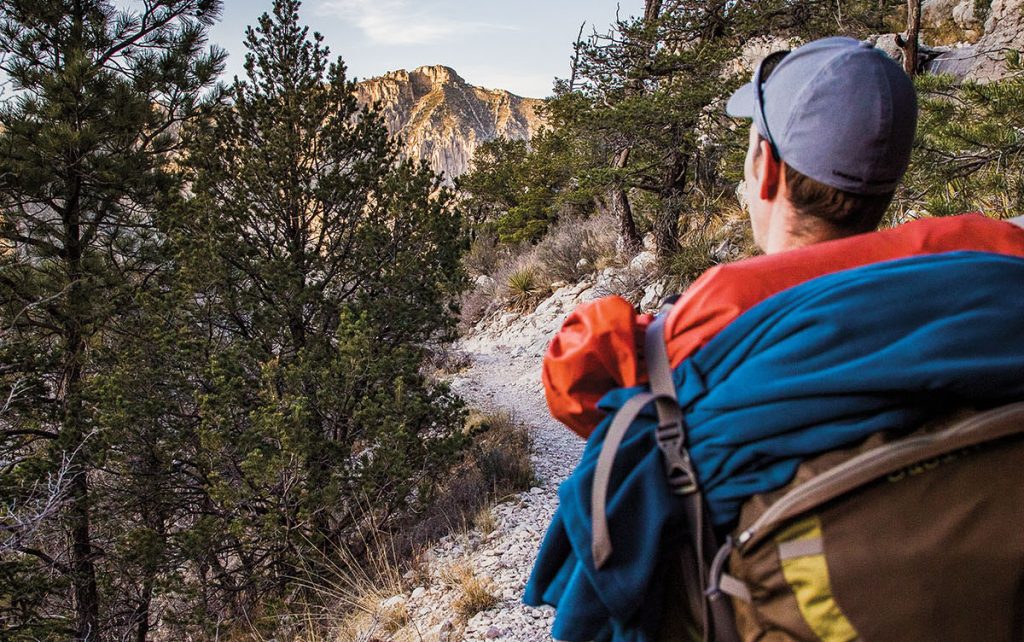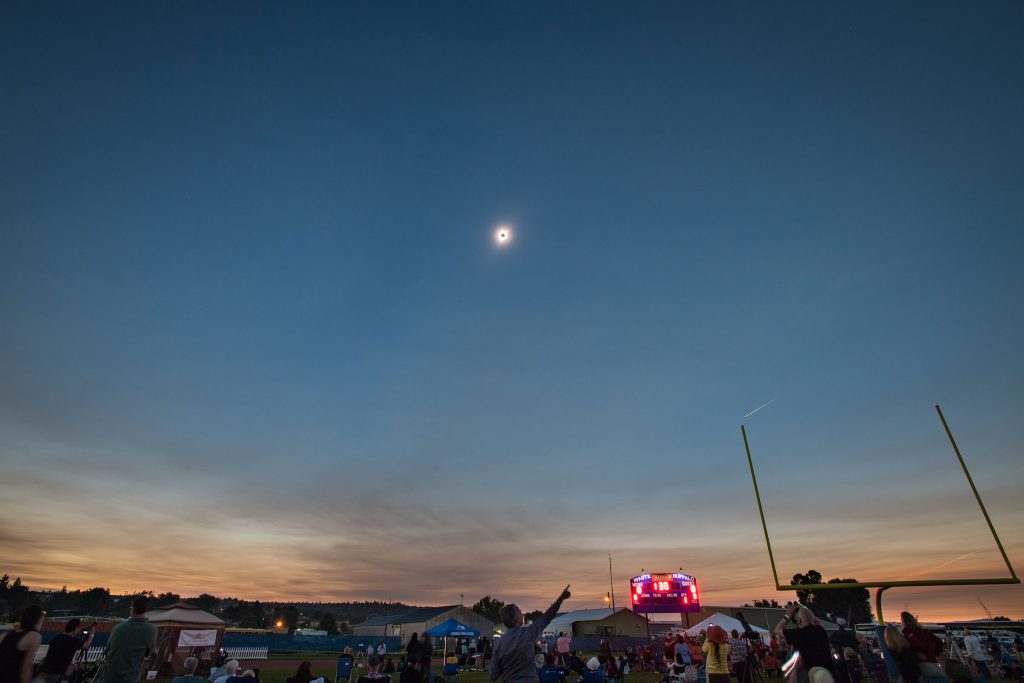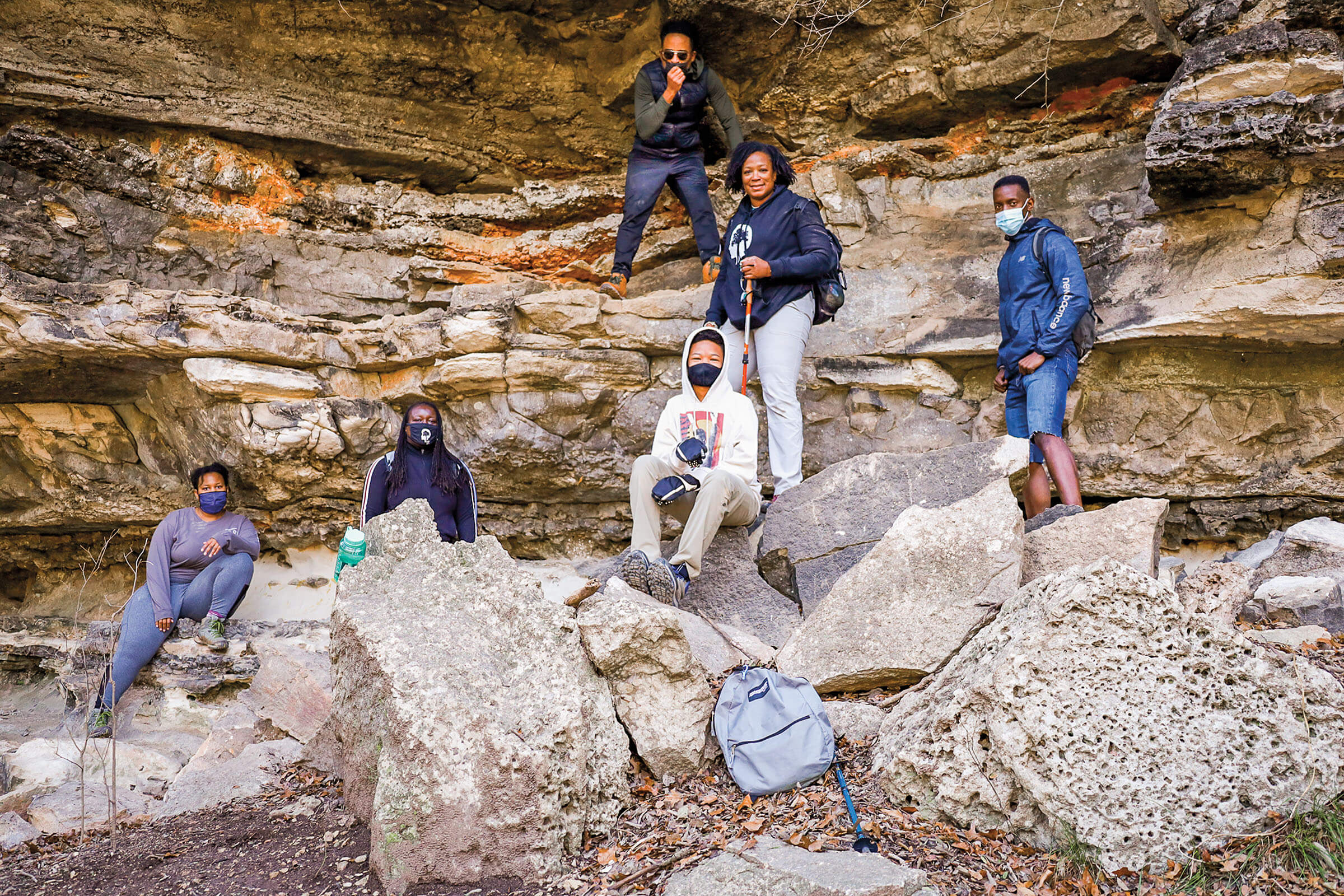
Reclaiming the Outdoors
Organizations and activists are working to reconnect the Black community with the serenity and joy of nature
By Kayla Stewart
The Violet Crown Trail weaves
through 13 miles of Austin’s landscape, extending from Zilker Park into the Lady Bird Johnson Wildflower Center. The pedestrian and cycling trail hosts a range of visitors: families and students, bikers and runners, and an exhausted yet hopeful me.
Though I was born and raised in Houston, Austin was my weekend home, my oasis of freedom and discovery. I dreamed dreams—some of which have come true—on Austin’s myriad trails, like Lady Bird Lake, the Greenbelt, and Turkey Creek. My professional pursuits have transported me to a life in New York City, but Texas—and its wide-open spaces—will always be home.
Last winter, I visited Texas for a hike with a group of seven Black strangers who shared my affinity for the outdoors. This group, the Austin chapter of the national organization Outdoor Afro, is determined to share the freedom and wonder of the outdoors with every Black resident in or near the Austin area.
For years, Black Americans have been hampered by the fictitious belief that the community doesn’t go outside. This narrative reflects the historical trauma experienced by Black Americans in the outdoors, from enslaved people running from hunting dogs in the wilderness to the centuries-long history of lynchings on the very trees that still stand today. Statistics reveal the effects of this thinking: National parks saw a total of 327.5 million visitors during 2019, but a National Park Service survey published a year earlier found that less than 2% of total visitors were Black or African American. Black people also have positive generational connections and experiences with the great outdoors, including agricultural and farming traditions, and sporting activities. Groups like Outdoor Afro and San Antonio-based Black Outside Inc. are working to reclaim this connection through social events, youth groups, and local organizing.
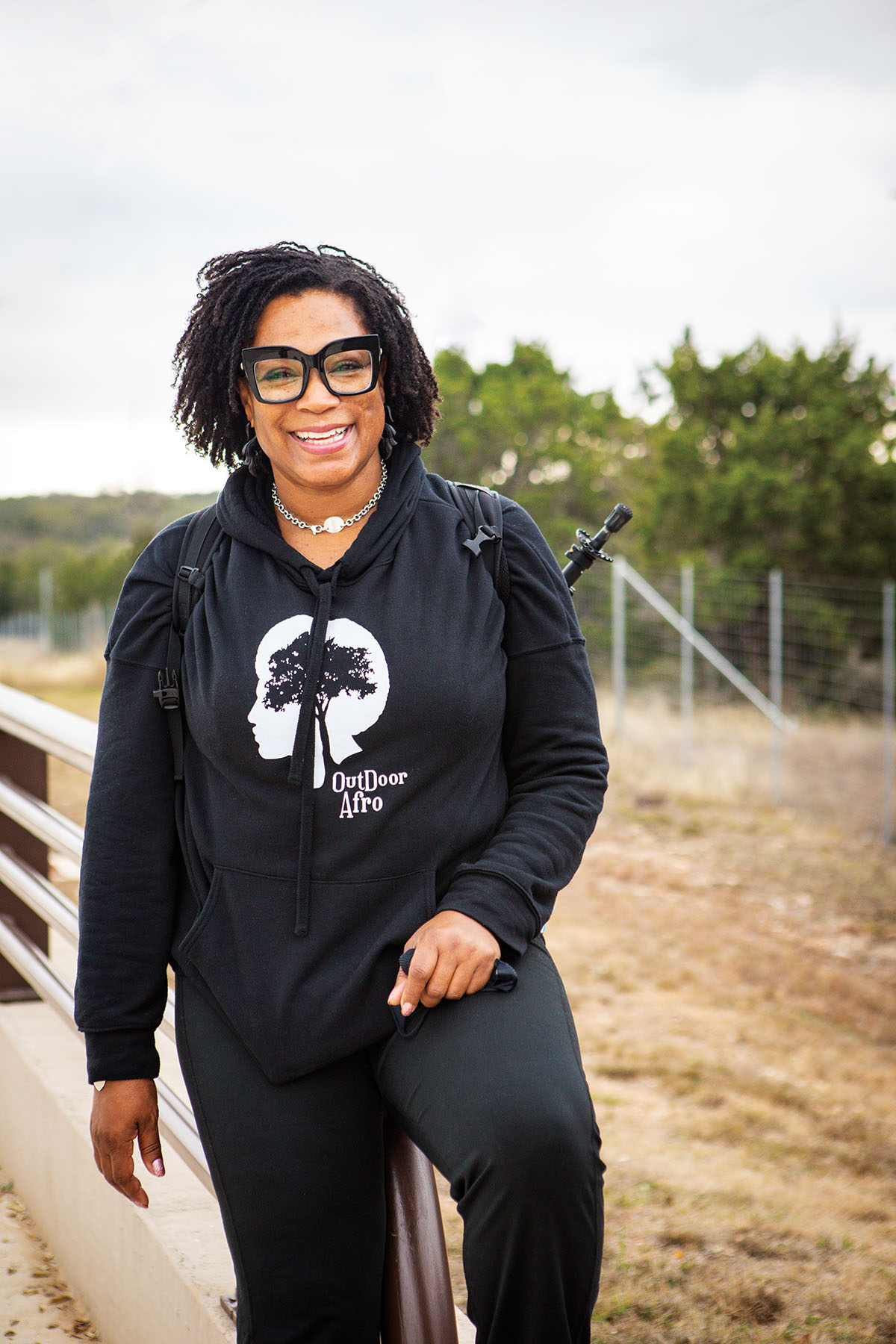
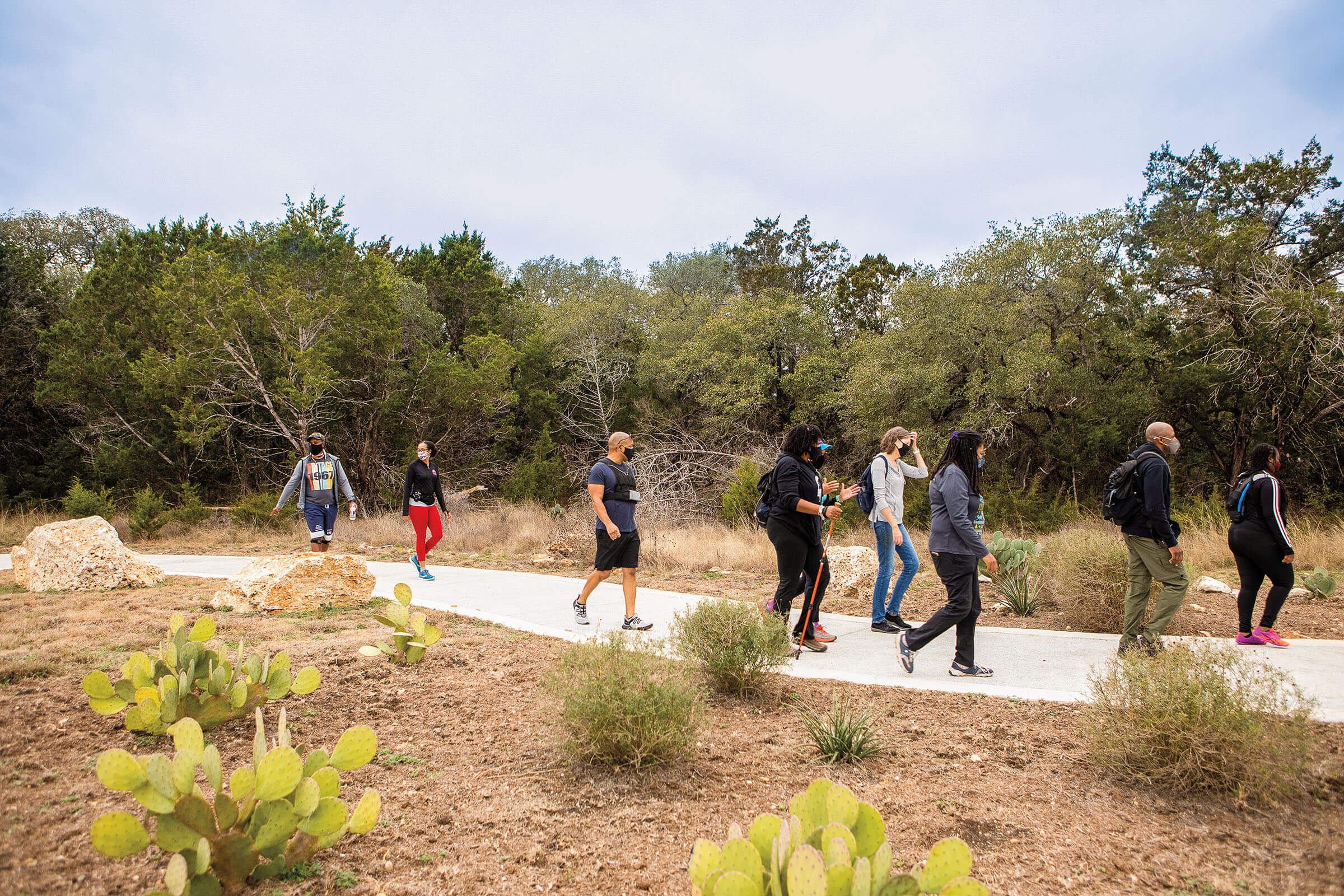
I bundled up for a chilly Saturday in January and met the group in a parking lot. There, Movetia Salter, leader of Outdoor Afro’s Austin chapter, spoke to the hikers before introducing the day’s activities. “We want to acknowledge that we are on other people’s land, and we acknowledge your presence on the traditional, ancestral, and unceded territory of Lipan Apaches, Comanches, and Tonkawa,” Salter said.
Outdoor Afro is a nonprofit formed in Oakland, California, that now hosts outdoor experiences in more than 30 states, with Texas outposts in Austin, Houston, and Dallas. Salter sees the group as one piece of a puzzle that reconnects Black Americans to their relationship with the outdoors.
“Number one, we’re reclaiming what is ours,” Salter told me as we stretched our legs over a bed of rocks on the trail. “We have entrenched in our speech: Black folks don’t go outside; Black folks don’t hike; Black folks don’t farm. Yes, we do! We are the original hikers. Look at Africans. Look at them with their running and their agriculture. They do all these things, and we are them.”
I hiked with an array of personalities who all had their own reasons for joining the group. Jaynell Nicholson, an Austin newcomer, had heard about Outdoor Afro and was excited to enjoy her first event with them; Norris Atkins is a self-proclaimed outdoorsman; Kimuli Nteza, a Ugandan immigrant, wanted to connect with Black Americans while taking in the natural sights; and Kimberly Fields simply wanted to enjoy the beautiful day. Salter’s 13-year-old son, Micah Salter, tagged along, smiling, speed walking, and helping his mom lead the way. Though we were from different backgrounds, we were all looking for the benefits that only come from being outside.
Salter, who served in the U.S. Air Force and raised four children, understands the limiting beliefs that pervade Black communities about safety in the outdoors. She’s resolved not only to live her life beyond them, but also to create spaces that allow other Black Americans to feel that freedom and safety, too.
“I think people have this desire, but I don’t think the outdoors has always been safe for Black people,” Salter said. “So, I just need them to come once. I want people to understand I’m not a pro at this, but I’m still out here.”
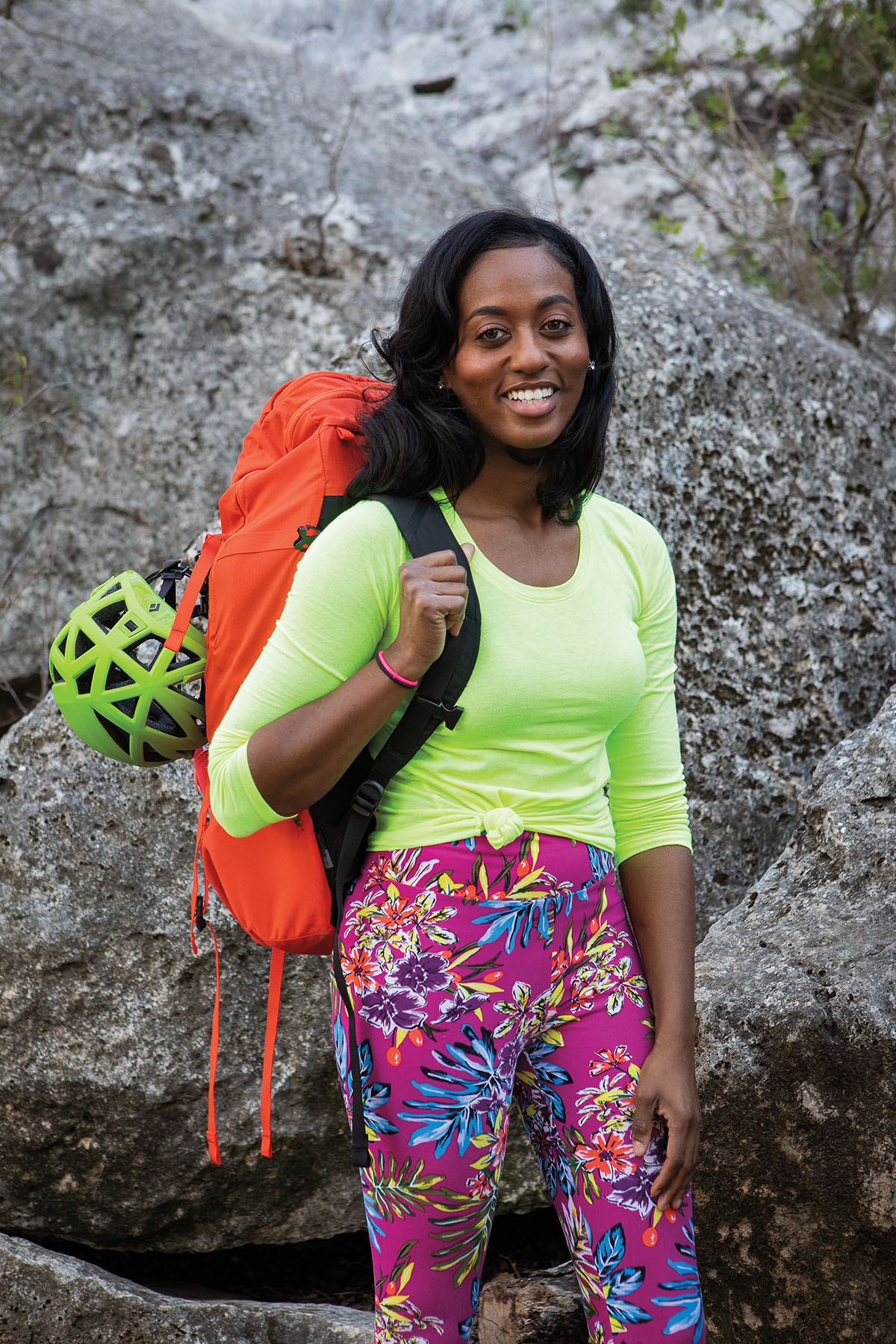
In 1838, Stephen Bishop, an enslaved 17-year-old, was purchased by attorney Franklin Gorin. That same year, Gorin also purchased Mammoth Cave in Kentucky, which was later established as a national park in 1941 and is recognized as the world’s longest cave system. In 1839, Gorin sold Bishop and the cave to Dr. John Croghan, who used the cave to experiment with treatments for tuberculosis patients and as a tourist attraction. Bishop was central to the cave’s tourism success because he knew the cave system better than anyone. He became a tour guide and a mapmaker, and he was the first person to explore the depths of the cave. Bishop’s legacy is honored through his burial site near the entrance to Mammoth Cave.
Bishop laid the groundwork for many Black adventurers today. Bree Jameson, a San Antonio-based caver and climber, is on a journey toward becoming the first Black woman in Texas to bolt and climb a first ascent. Bolting is the process of installing hardware into holes drilled in the rock, which allows climbers to ascend safely. A first ascent means she would be the first person to climb that section from bottom to top. Her quest is documented in an upcoming movie entitled J.E.D.I. Training Film, expected to be released in 2022.
A New Orleans native, Jameson grew up with an early appreciation for being outdoors. Her father was a thoroughbred horse trainer, and Jameson has vivid memories of donning jeans and boots to help him in the stables as a child.
She was inspired to reconnect with the natural world after watching the 2005 adventure-horror film The Descent several years ago. Although she found the plot ridiculous, the cave scenes captivated her. The mom of two did an internet search and discovered that parts of Texas are heavily karsted due to their limestone bedrock. She learned about Bexar Grotto, a local chapter of the National Speleological Society that focuses on cave preservation and exploration, and walked into their meeting the following week.
“Everyone kind of stopped and turned and looked at me,” Jameson recalled about the predominantly white group. “It was a little awkward, and people asked me if I was in the right meeting.”
After getting past the initial discomfort, the group invited Jameson on their next caving excursion.
“My mom was in tears, saying, ‘Please don’t go. This doesn’t sound like a good idea. It’s not safe for you as a young Black woman to go underground with a bunch of white people you don’t know,’” Jameson said.
But Jameson wasn’t deterred. She went down into the bottom of the sinkhole at Robber Baron Cave in northern San Antonio and proceeded to enter the mouth of the cave through an iron gate.
“And you know, my heart’s racing because I’m excited,” she recounted. “But I’m also really nervous, and my family filled my head with all these murder stories. And [the other cavers] look at me and they go, ‘Okay, you first.’”
Despite her trepidation, Jameson’s inner explorer took over. Her entrance into the cave began a new love affair with the great outdoors and led to enduring friendships.
In 2018 and 2019, she focused on learning caving techniques. She explored vertical caving (which allows cavers to go into deeper caves that aren’t accessible without ropes or gear) and expedition caving (which focuses on discovering, surveying, and cataloging caves for scientific purposes). Her hobby has taken her around the country and to Mexico.
She also began engaging with more women and people of color in San Antonio to encourage them to get outside. She worked with the Texas Parks and Wildlife Department’s Texas Outdoor Family program, leading mountain biking, kayaking, and hiking expeditions, increasing leadership representation along the way. Though she enjoys this work, she admitted it’s challenging.
“These spaces felt very comfortable for me,” Jameson said. “And then I realized after doing outreach and taking other folks of color into these spaces that maybe there’s a little bit more to dig through. I think that normalizing all of these amazing activities by representing people who look like me is important.”
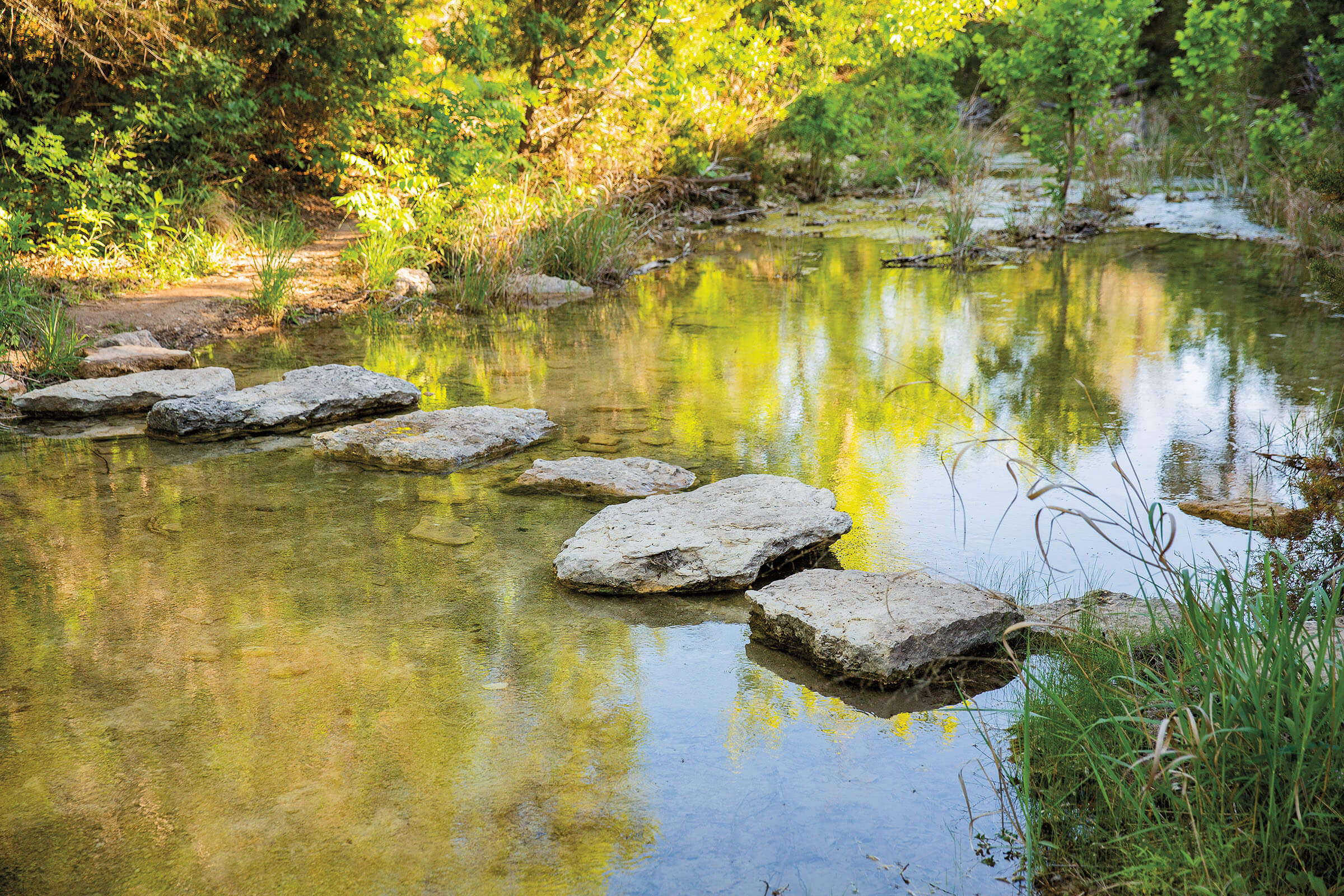
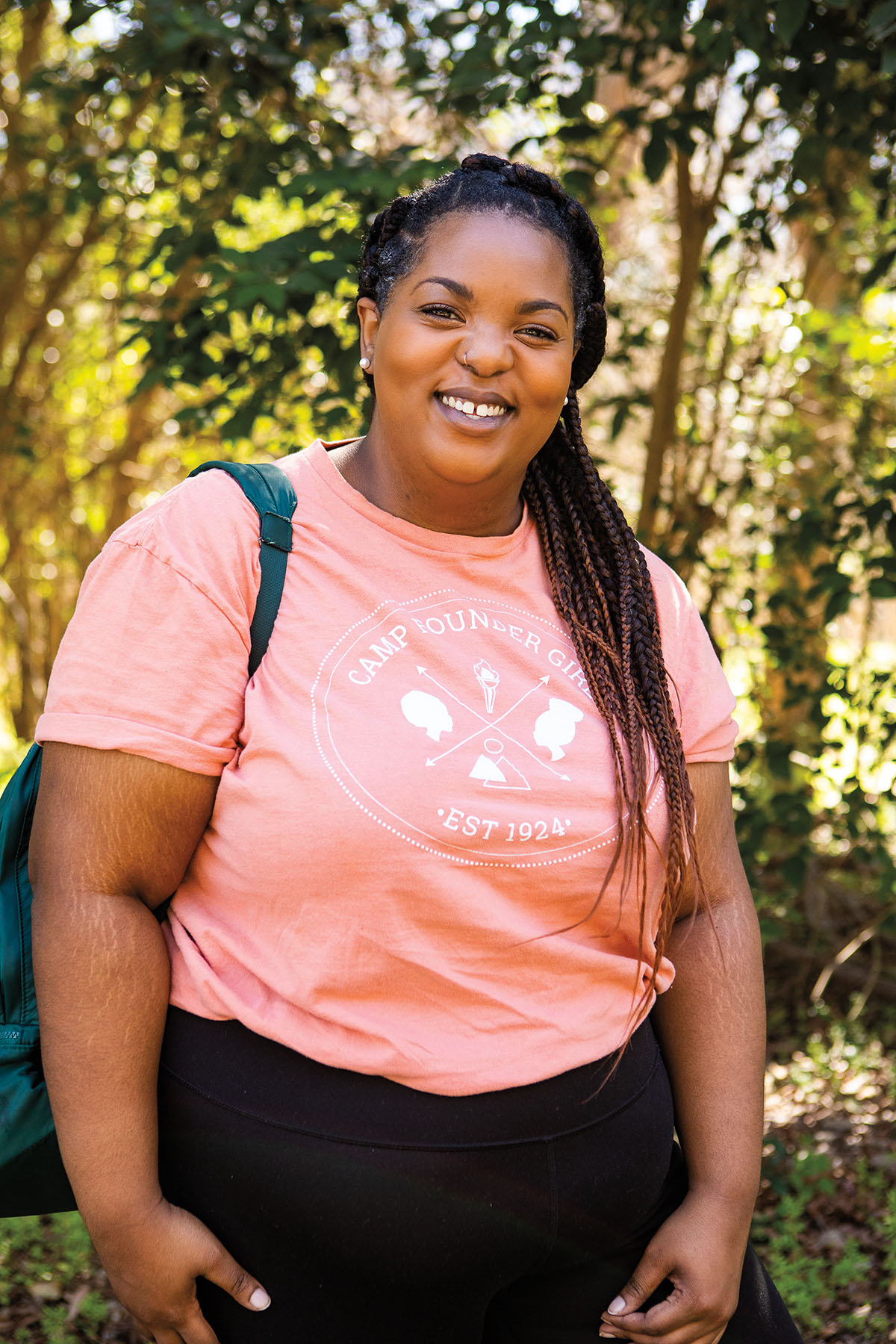
Normalizing outdoor recreation is something Alex Bailey and Angelica Holmes think about regularly. The two outdoors enthusiasts lead Black Outside, a San Antonio-based organization that engages Black youth with nature through camps and other activities.
A native of Ohio, Bailey made his way to San Antonio by way of Teach for America. He has formative childhood memories of gardening with his grandfather and playing outside. As an outdoor educator, he knew bringing that experience to Black children, who are historically underserved and underrepresented in outdoor activities, was essential.
“Being outdoors is a human experience,” Bailey said. “When I tell our kids that we’ve been outside for thousands and thousands of years, that it’s wired in your DNA to be outside, you see an instant connection, you see an instant spark from the kids.”
Black Outside coordinates a number of programs, including the CR Bloom Project in San Antonio, which is an outdoor healing program for Black children with incarcerated parents, and Camp Founder Girls, a summer camp that was established in 1924, but ceased operations in the 1960s. Holmes resurrected the latter in 2019 with a focus on the outdoors.
“I think the most important thing about Camp Founder Girls is our four pillars, which are strong, brave, creative, and confident,” Holmes said. “Once we can check off those boxes, then we’ve pretty much done our job.”
Bailey and Holmes also acknowledged the trauma Black Americans associate with the outdoors and the way it affects their campers.
“One of the pieces of intergenerational trauma that we live with is the legacy of slavery,” Bailey said. “It taps into our fears of the outdoors. We have to reclaim that space of what was taken from us because of white supremacy.”
Once that identity is reclaimed, Bailey and Holmes have witnessed, there’s joy.
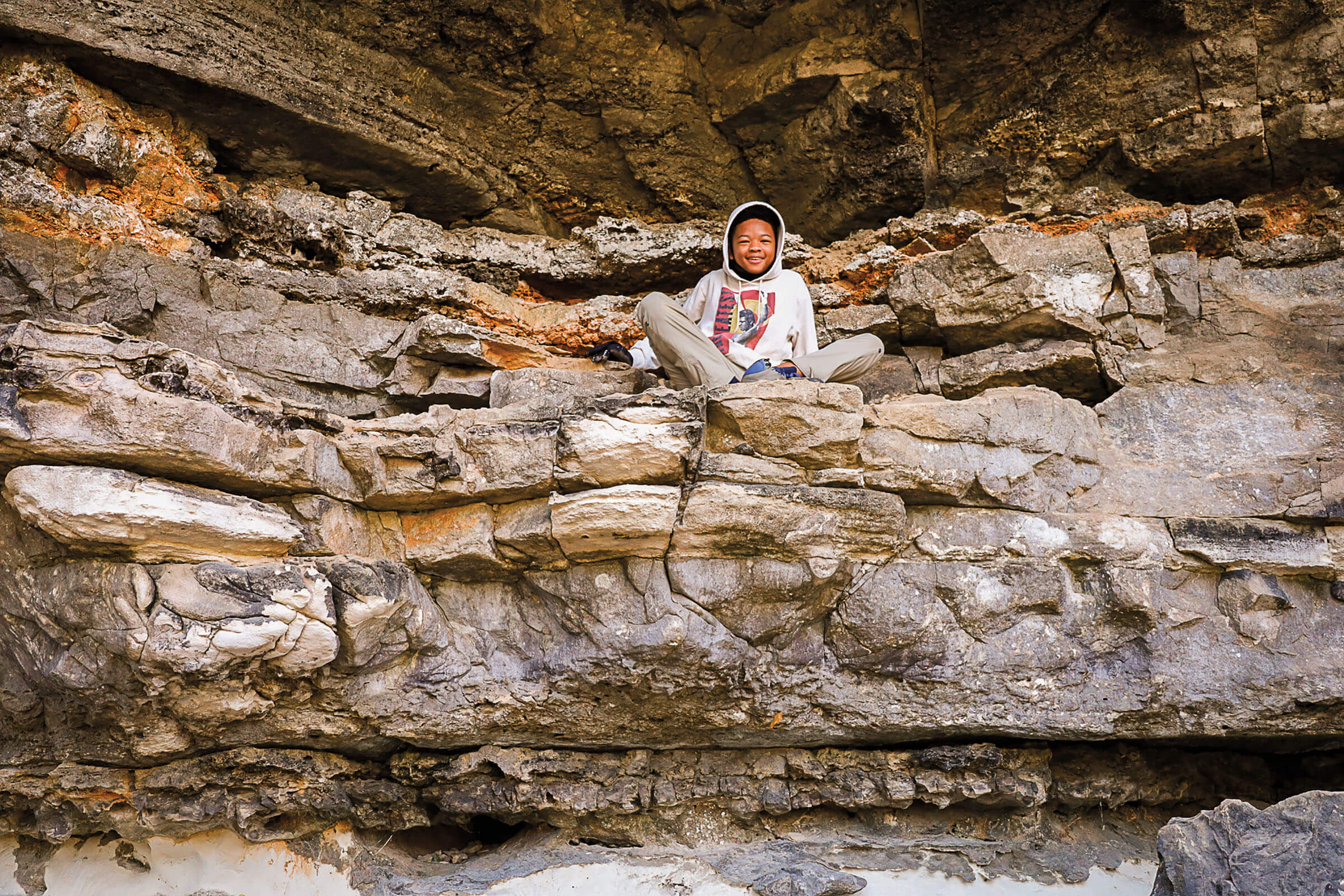
Back on the Violet Crown Trail, the hike with Outdoor Afro was coming to an end after nearly four hours. Though many of the creeks and streams were dried up, the limestone rock and greenery seemed to welcome us anyway.
As I hiked up our last hill, I gazed up at the sun shining over Austin. It struck a markedly beautiful tone, lighting up the Black faces around me with an ethereal glow. Nicholson walked steadily as Fields and I worked on controlling our breath; Atkins skidded across a bank ever so lightly as Nteza drifted from side to side; and Micah outpaced us all, buoyed by the vitality of youth. Other members found their own rhythm as we walked back to our starting point, Salter leading the way with the confidence and fearlessness of someone who’s built a mutual respect with the land.
“I think it’s about us reclaiming and remembering and unlearning what we’ve been told,” Salter explained to me. “It’s kind of this thing like, ‘Black people don’t swim.’ We did swim, but to keep us from running away, our descendants weren’t taught to swim. It has nothing to do with this idea that we don’t swim. We lost that skill, like we lost our language. We can reclaim that.”
We reached the top of the trail, where the gravel exit opened up to rays of light and the sounds of weekend road traffic and oncoming hikers, and breathed a sigh of relief. We stopped to chat about the emotions we felt at the end of the hike—some felt rested, some felt restored, and others felt renewed. I felt all of those things, too, but mostly gratitude. Gratitude for the sun, the towering trees, the whistling winds, the whispers of water in the creeks, and the crisp chill of the Texas winter air. Chiefly, I felt grateful that despite all of the injustice that sought to strip this land from us, it is still ours—ours to walk, to hike, to claim, and to cherish.
“When I tell our kids that we’ve been outside for thousands and thousands of years, that it’s wired in your DNA to be outside, you see an instant connection, you see an instant spark from the kids.”
Engage and Explore
Outdoor Afro
The California-based nonprofit has outposts in Austin, Dallas, and Houston, with local leaders organizing outdoor activities like hikes, kayaking excursions, and fishing trips. outdoorafro.com/locations/state/TX
Black Outside Inc.
Based in San Antonio, this organization offers two outdoors programs geared toward youth. Camp Founder Girls is a Texas summer camp, and CR Bloom Project is a healing program for kids of incarcerated parents. blackoutside.org
Texas Outdoor Family
The Texas Parks and Wildlife Department program offers guidance for first-time campers and burgeoning outdoors enthusiasts.
Scheduled throughout the year, the workshops are led by rangers and cover basics like how to set up a tent and general safety.
tpwd.texas.gov/state-parks/programs/texas-outdoor-family
